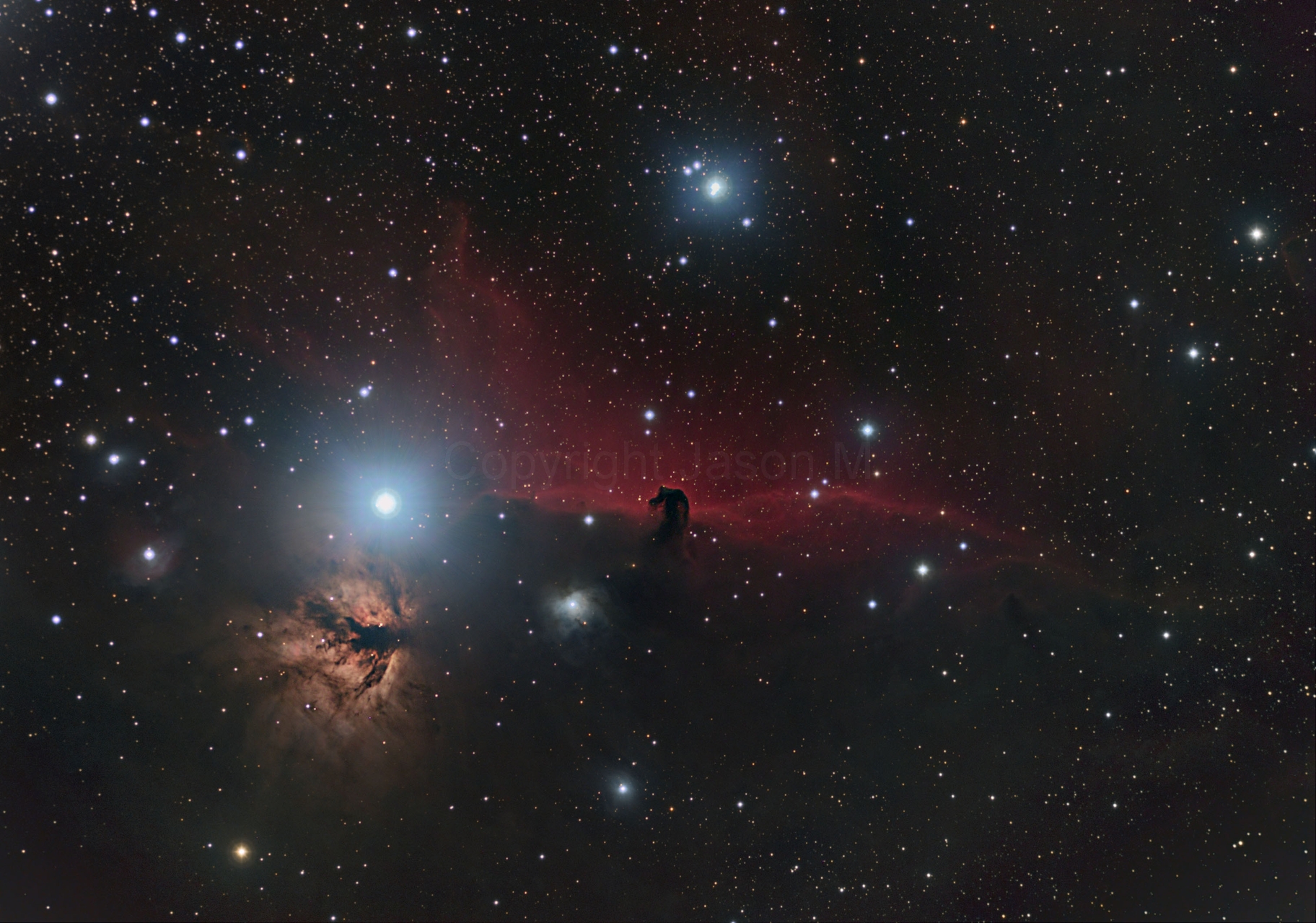Lagoon Nebula & Trifid Nebula

The Lagoon Nebula (catalogued as Messier 8 or M8, NGC 6523, Sharpless 25, RCW 146, and Gum 72) is a giant interstellar cloud in the constellation Sagittarius. It is classified as an emission nebula and as an H II region.
The Lagoon Nebula was discovered by Giovanni Hodierna before 1654[4] and is one of only two star-forming nebulae faintly visible to the eye from mid-northern latitudes.
The Trifid Nebula (catalogued as Messier 20 or M20 and as NGC 6514) is an H II region located in Sagittarius. It was discovered by Charles Messier on June 5, 1764.[3] Its name means 'divided into three lobes'. The object is an unusual combination of an open cluster of stars; an emission nebula (the lower, red portion), a reflection nebula (the upper, blue portion) and a dark nebula (the apparent 'gaps' within the emission nebula that cause the trifurcated appearance; these are also designated Barnard 85). The Trifid Nebula is a star-forming region in the Scutum spiral arm of the Milky Way.
- Location: Harold Campbell Everglades
- Scope: Takahashi FSQ-106ED with reducer
- Camera: Fli ML8300 with CFW2-7 and Astrodon Filters
- 600 sec LUM / 300 sec subs RGB bin 2 for 5 hours in Maxim DL
- Combined in Maxim DL and processed in Pixinsight
- Taken 8/9/13







